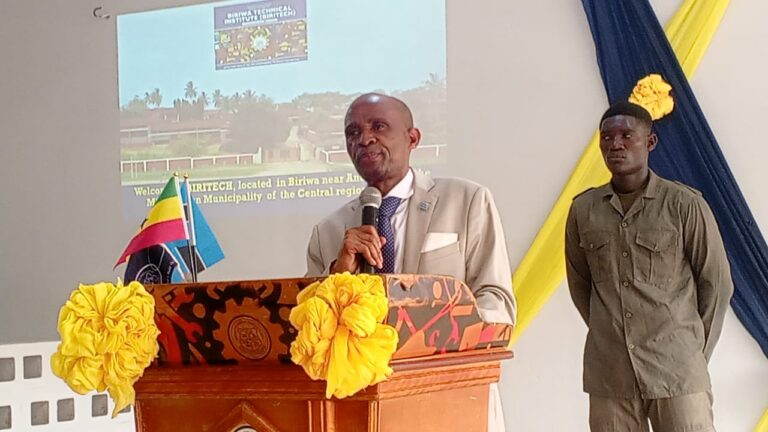|
Getting your Trinity Audio player ready...
|
The Ministry of Higher Education of Botswana has applauded the Ghana Technical and Vocational Education Training (TVET) Service, for its innovative and transformative skills’ development approach.
As such, a delegation from Botswana, led by Mr Prince Maele, the Sector Minister and other education experts, are on a week’s visit to learn about the Ghana TVET Service’s unique framework, regulatory policies, institutional realignment and industry partnerships that have made it a model for vocational education in Africa.
The delegation is focused on Ghana’s TVET institutions, administrative structures, curriculum, gender enrolment and retention, student employability, entrepreneurship, and funding mechanisms. In effect, the study visit will support Botswana’s policy reforms, improve TVET governance, enhance curriculum relevance and boost youth employability for accelerated economic growth.
Overall, the move will strengthen diplomatic ties, academic tourism, exchange programmes and cultural diversity between the two countries. Ghana and Botswana established formal diplomatic relations on October 28, 1975, to enhance cooperation.
Recent interactions include knowledge-sharing missions and calls from Botswana’s leadership to deepen diplomatic ties, academic exchanges and mutual collaboration in education and skills development reflecting both countries’ commitment to strengthening bilateral relations for mutual benefit.
At a visit to the Biriwa Technical Institute near Cape Coast, Mr Maele emphasised the growing recognition of TVET as a vital driver for sustainable development and youth empowerment across Africa. He stated that Botswana’s TVET strategy was embedded in its National Development Plans to improve access to high-quality TVET and produce a competent, innovative, and internationally competitive workforce.
“This workforce is expected to contribute to socio-economic and technological advancement, job creation, and poverty reduction. “The Ministry remains focused on developing competence-based skills aligned with labour market demands while addressing the negative perception of TVET as ‘education for failures,” he stated.
Mr Maele described Africa’s young population as its greatest asset and stressed that tackling youth and graduate unemployment required a strong focus on TVET which equipped learners with practical skills to enhance employability and economic participation.
For that matter, he acknowledged Ghana’s pioneering TVET model as a beacon for other nations seeking to strengthen their vocational education systems. He encouraged the Ghana TVET Service and related institutions to engage in reciprocal visits to learn from Ghana’s approach and best practices.
Mr Seth Botwey, the Deputy Director of TVET Service in the Central Region, applauded the visit and called for more reciprocal exchanges between TVET institutions in Botswana and Ghana for mutual benefits. He highlighted Ghana’s TVET Service for its comprehensive integration of technical and vocational education under one umbrella, which had standardised quality, streamlined administration and strengthened collaboration between academia and industry.
Mr Botwey emphasised the Service’s commitment to empowering Ghanaian youth with relevant technical and soft skills to thrive in a dynamic workforce, thereby contributing significantly to national development and industrialisation. Mr Samuel Kwashie Amegbor, the Principal of Briwa Technical Institute praised government efforts to continuously reform TVET and attract youth, especially females, to these programs.
He noted that the TVET Service was undergoing restructuring to establish sustainable quality management systems across institutions, including instilling eco-consciousness and eco-friendliness among staff and learners. Established in 1974 to address unemployment in the Biriwa fishing community, he said the Institute has trained over 9,000 youth.
He said a tracer study indicated that 35 per cent of the Institute’s graduates had pursued further education, 39 per cent were employed in the public and private sectors, with 19 per cent being self-employed, while eight per cent were still seeking employment. The Institute offers eleven programmes, including Electrical Engineering, Motor Vehicle Engineering, Hospitality and Catering, Fashion Design, Welding and Fabrication, Refrigeration and Air Conditioning and Building and Construction.
Others are Computer Hardware Technology, Wood Construction Technology, Leather Works Technology and a pilot Oil and Gas Technology programmes soon to be expanded.
Source: GNA


